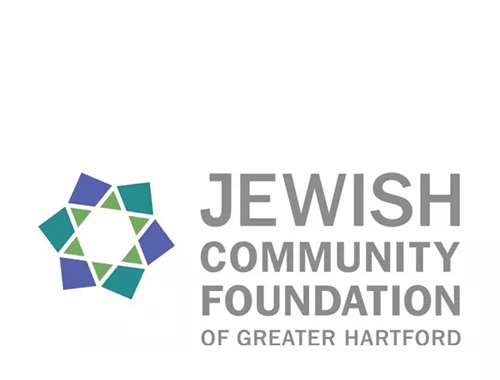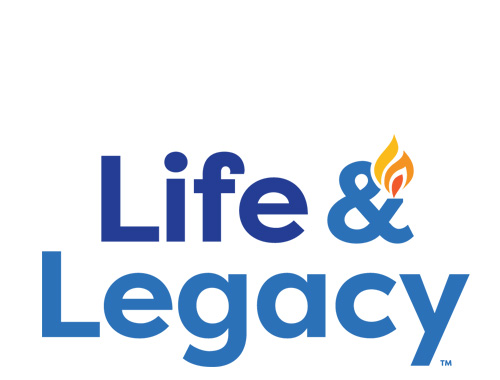Schechter Shavua: January 10, 2025
 5th Graders are Now Torah Readers for Life
5th Graders are Now Torah Readers for Life
What was most remarkable about the Fifth Grade Torah Reading program in December wasn’t just the poise and proficiency of our fifth grade students as they read Torah for the first time. What made the program so powerful was its authenticity, the way they were demonstrating actual skills they had mastered.
It’s possible to memorize a short Torah reading—but it’s another thing entirely to actually learn the musical system so you can teach it to yourself. That’s what our fifth graders did! They spent many hours with Rabbi Berger learning genuine Torah reading skills: the cantillation symbols, the grammar required to pronounce and stress words correctly, the habits of how to practice. The skills they gained have them ready for a lifetime of reading Torah.
We wish a mazal tov to the Fifth Grade students and their families for their joyful, inspiring work!
To see photos of each fantastic Torah reader, please click HERE.
Schechter Players Shed Light and Laughs on the Goldilocks Story
Goldilocks is on trial for entering the Bear family's house. Will she be found guilty or set free?? The cast of The Trial of Goldilocks began rehearsals in September and worked diligently for almost 3 months to perform this play in verse that proves to be more difficult than a simple children's tale. The play first shows the story of Goldilocks and the Three Bears as we know it, then it offers perspectives told from both the Bear family's and Goldilocks' point of view. The cast learned to work together and help each other on stage. Audience members were on the edge of their seats for the performance on December 15th following STEAMfest and again for the entire school on December 17th. Was Goldilocks found guilty? Maybe the Schechter players helped us gain a new understanding of the Goldilocks story!
To see photos, click HERE
Sigd Celebrations Help Teach the Diversity Among Jewish People
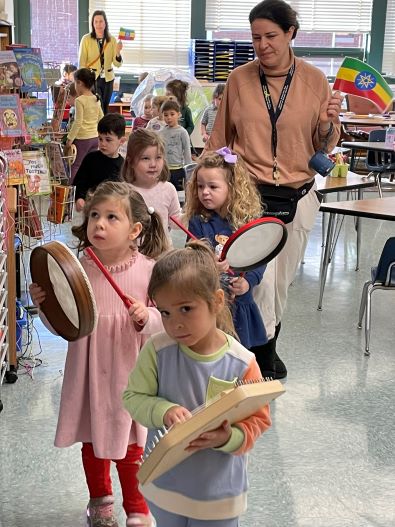 Schechter students learned about and celebrated the Ethiopian Jewish holiday of Sigd. The Ethiopian Jewish Community — called Beta Israel — has long celebrated Sigd fifty days after Yom Kippur. On Sigd, members of the Beta Israel community fast, read from scriptures (Five Books of Moses, Joshua, Judges and Ruth), recite psalms, and pray for the rebuilding of the Temple. The day begins with a serious tone and a monochromatic, white look and transitions mid-day to colorful celebrations filled with feasts of tasty foods, vibrant colors, and dancing to energetic music. Colorful umbrellas are used as protection from the beaming sun and heat.
Schechter students learned about and celebrated the Ethiopian Jewish holiday of Sigd. The Ethiopian Jewish Community — called Beta Israel — has long celebrated Sigd fifty days after Yom Kippur. On Sigd, members of the Beta Israel community fast, read from scriptures (Five Books of Moses, Joshua, Judges and Ruth), recite psalms, and pray for the rebuilding of the Temple. The day begins with a serious tone and a monochromatic, white look and transitions mid-day to colorful celebrations filled with feasts of tasty foods, vibrant colors, and dancing to energetic music. Colorful umbrellas are used as protection from the beaming sun and heat.
Sigd became an official holiday in Israel in 2008, and Schechter students have learned about it for several years, participating in various craft projects like decorating umbrellas, dancing to Ethiopian Jewish music, and zooming with Ethiopian Israelis to hear about their celebratory experiences. Middle school students had fascinating conversations with their Israeli teachers, discussing the challenges and dangers Ethiopians faced when they had to uproot themselves quickly and hearing from Ruth Ben Porat about the ways that her mom, then a soldier in the IDF, helped the Ethiopian immigrants acclimate to life and customs in Israel. Ilanot (Kindergarten) read a book that explained some of the Sigd traditions in Israel.
To see photos of the Sigd celebrations, click HERE.
STEAMfest Lights Up Students’ Enthusiasm
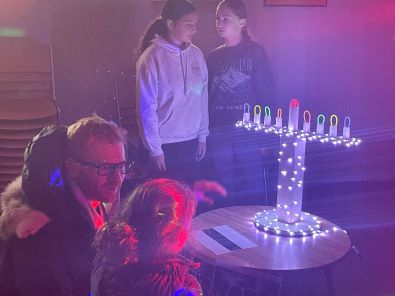 Does adding a carrot to frying oil help prevent potato latkes from burning? Students tested this theory and more at Schechter’s Hanukkah STEAMfest, a collaborative program that inspires learning through science, technology, engineering, arts, and math. Other student projects involved coding games about Hanukkah, creating light-up menorahs that responded to sound, programming robots to trace the paths of Hanukkah shapes, and of course, testing the science of making latkes. For more than a month leading up to Hanukkah, students brainstormed ideas, researched, created, tested, and put to use their fabulous inventions and creations which helped them celebrate Hanukkah in a number of “STEAMy” ways. Students were excited to learn about circuits, create new games, try their hand at sewing; they tripled recipes, learned new computer programs, and more.
Does adding a carrot to frying oil help prevent potato latkes from burning? Students tested this theory and more at Schechter’s Hanukkah STEAMfest, a collaborative program that inspires learning through science, technology, engineering, arts, and math. Other student projects involved coding games about Hanukkah, creating light-up menorahs that responded to sound, programming robots to trace the paths of Hanukkah shapes, and of course, testing the science of making latkes. For more than a month leading up to Hanukkah, students brainstormed ideas, researched, created, tested, and put to use their fabulous inventions and creations which helped them celebrate Hanukkah in a number of “STEAMy” ways. Students were excited to learn about circuits, create new games, try their hand at sewing; they tripled recipes, learned new computer programs, and more.
Like any real-world design process, students began by brainstorming holiday-related ideas. They created schematic drawings, compiled materials lists, built prototypes--and then tested and revised. Our MakerSpace was an excellent location to foster collaboration and creativity with higher-level tools and supplies. All throughout, they collaborated and problem-solved.
After five weeks of preparation and collaboration, on STEAMfest day, students were excited to demonstrate what they had learned and achieved throughout the process. Parents experienced each project by playing games, observing experiments, spinning homemade dreidels, tasting latkes, and more. The ingenuity and collaboration among the students made Schechter’s STEAMfest a fun, exciting, and celebratory day.
Click HEREto view many photos from throught the STEAMfest design, construction, and demonstration process.
Parashat Vayehi—The Blessing of Grandparents
 If parents bless their daughters at the Shabbat dinner table, they traditionally begin the blessing by saying, Yesimeikh Elohim ke-Sarah, Rivkah, Rahel ve-Leah , May God make you like Sarah, Rebekah, Rachel and Leah. This line rarely inspires questions; it’s not surprising that we invoke the names of the Matriarchs. But when blessing sons, parents traditionally say, “Yesimekha Elohim ke-Efra’im vekhi-Menashe, May God make you like Ephraim and Menashe.” Who are these men, and why are their names incorporated into this ritual but nowhere else in Jewish prayer?
If parents bless their daughters at the Shabbat dinner table, they traditionally begin the blessing by saying, Yesimeikh Elohim ke-Sarah, Rivkah, Rahel ve-Leah , May God make you like Sarah, Rebekah, Rachel and Leah. This line rarely inspires questions; it’s not surprising that we invoke the names of the Matriarchs. But when blessing sons, parents traditionally say, “Yesimekha Elohim ke-Efra’im vekhi-Menashe, May God make you like Ephraim and Menashe.” Who are these men, and why are their names incorporated into this ritual but nowhere else in Jewish prayer?
The source of this sentence comes from this week’s Torah portion. Jacob is old, near the end of his life, and so he begins to set his affairs in order. First, he talks to his most beloved son Joseph about his burial wishes. Then, he retells some of his life’s story, and offers a special blessing for Joseph’s two sons, Menashe and Ephraim. But as Jacob offers the blessing, he unexpectedly crosses his arms, putting his right hand—the favored one—on the younger brother. Joseph questions his father about this, and Jacob responds with the verse that I quoted above—Yesimekha Elohim ke-Efra’im vekhi-Menashe.
Putting aside Jacob’s own motivations for favoring the younger brother: Why was this verse adopted into our Friday night ritual? My favorite answer focuses on the fact that in the entire book of Bereishit/Genesis, there are no stories of grandchildren interacting with their grandparents until this very story. Even though the Torah says that early humans had extraordinarily long lifespans, we never read about Adam, Noah, Abraham or Isaac meeting their grandchildren. The first time we see such a relationship is here, with Jacob and Joseph’s sons.
In a sense, then, every Friday night, we aren’t just asking God to care for our children—we are also expressing a hope that they may be blessed to get to know their grandparents. Not all families are able to enjoy that blessing, we know—but it is a beautiful hope to express at a family Shabbat table: that our values, relationships, and love may extend for generations.
Shabbat shalom,
Rabbi Jonathan Berger
Head of School
Questions for the Shabbat table:
- What do you make of Jacob crossing his arms when blessing his grandsons?
- If you were blessed to know your grandparents, what would you share about them with your children? How do your own children connect to/know their grandparents, and what are your hopes for that relationship?
Solomon Schechter Day School
of Greater Hartford
26 Buena Vista Road
West Hartford, CT 06107
© Solomon Schechter Day School of Greater Hartford | Site design Knowles Kreative
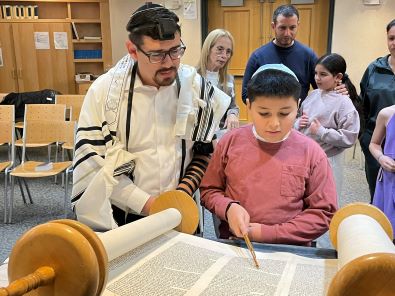 5th Graders are Now Torah Readers for Life
5th Graders are Now Torah Readers for Life
